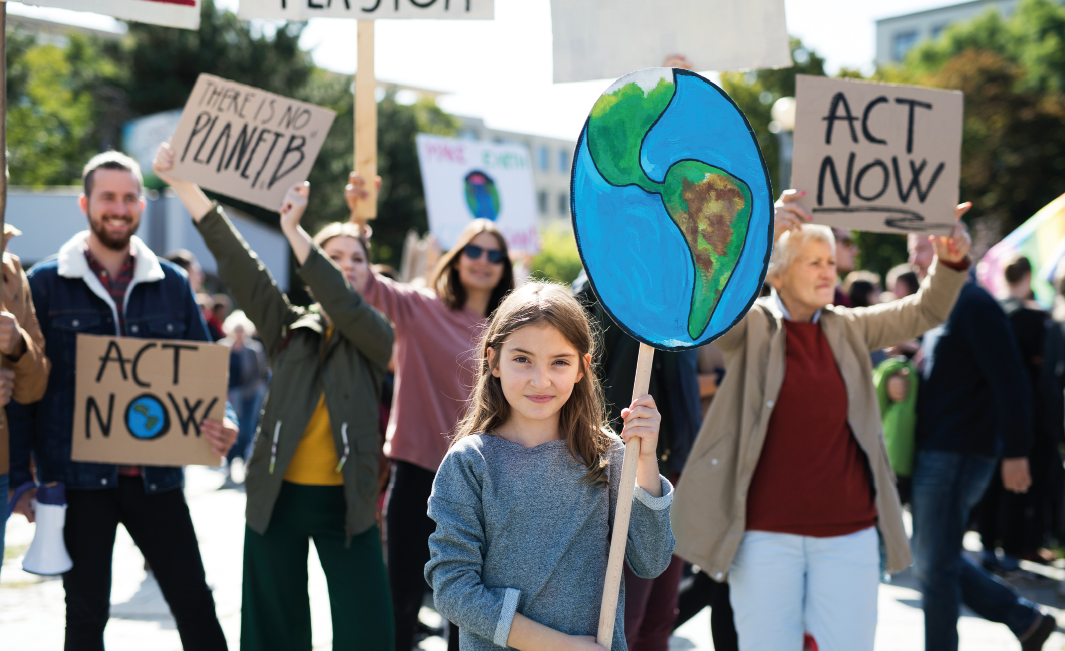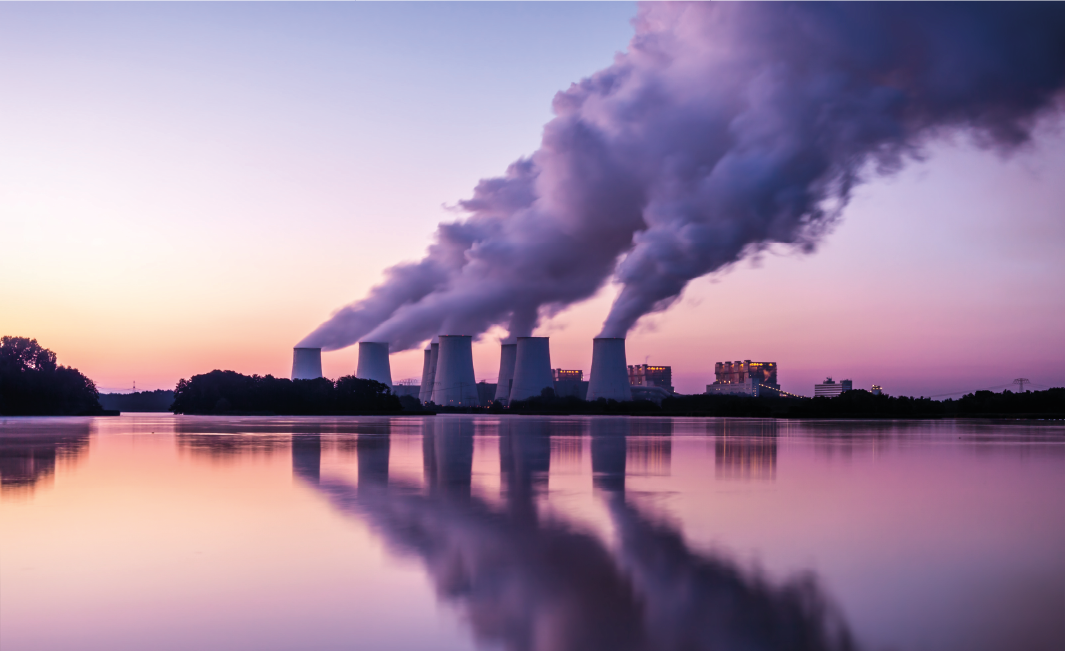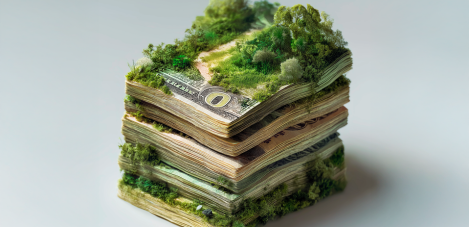-
TrendsReputationEnvironmentRisksSustainability / ESG
-
SectorEnergy, Oil and GasInfrastructure, Transportation and LogisticsProfessional Services
-
CountriesGlobal
Accusations of greenwashing have become some of the largest challenges companies face when making commitments to the environment. The arrival of the phenomenon Greta Thunberg and her Fridays For Future, a movement with a strong presence on social media, has gotten everyone to speak about this term, although it’s not a new concept.
In the 80’s, an American student escaped to the Fiji archipelago to catch waves and ended up at one of the largest and most prosperous resorts in the area. This complex took up the vast swathes of virgin land, but still asked guests to be responsible with the use of their towels to protect the environment. Shortly after, the young man spoke about his experience in an article in which he used a very particular term to express the hypocrisy that showed the contrast between the awareness-raising message and what was, in his view, the hotel’s expansionist policy: greenwashing.
From a literary license to reputational weapon: the development of the term
For years, the article written by the young student was kept confined to environmental groups and their specialized magazines, and its access was limited to experts in this field. The growth of advertising in the 90’s made large environmental associations focus on polluting companies that began to launch green campaigns. The fight to avoid what activists considered a deception of consumers and a threat to controlling the real practices of these companies led Greenpeace to launch its book: Greenpeace Book on Greenwash, which analyzed the contrast between the behavior and the rhetoric of the most polluting corporations in the world. Five years later in 1999, the word greenwashing was included in the Oxford dictionary.
Since then, this term has fully integrated itself in everyday vocabulary and in 2010 became a mass phenomenon: the movement for the defense of the environment. The involvement of new generations, who looked to young activists like Greta Thunberg as leaders and for reference, populated social media with campaigns, trends and messages for “real” sustainability. The voice of anonymous users on social media made institutions and companies confront the demands for control and transparency from citizen movements.
Thus, any corporate action began to run the risk of being scrutinized by ordinary citizens who had access to powerful platforms. They could take any simple message and subject it to collective criticism that would force the withdrawal of a pricey corporate campaigns over accusations of hypocrisy or environmental inconsistency.
The strong voice of consumers regarding this subject has reached institutions, which are starting to become aware of their responsibility to protect consumers from green messages that are not sufficiently substantiated. As such, the European Commission has proposed updating the EU rules governing consumer protection to “empower them for the green transition”. This regulatory review includes new practices that will be considered misleading, such as “making a statement about future environmental performance without clear, objective and verifiable goals or commitments, and without an independent monitoring system.”
Making claims about sustainability has potential consequences. Sometimes the risks are not worth it. These allegations can turn into weapons thrown at the heart of companies.


Paradigmatic cases
Less than 10 years ago, Germany’s Volkswagen was known as one of the greenest and most modern car manufacturers in Europe. It had even won Germany’s National Energy Globe Award and announced multi-million-dollar investments in the environmental trend of the time; products labeled “ecofriendly.” Part of this investment was intended for a massive fleet of diesel cars for which very low CO2 emissions were announced. However, in September 2015 it was discovered that behind these emissions figures was a device that illegally altered the pollution results. The green fleet, which included more than 11 million cars sold between 2009 and 2015, emitted up to 40 times more nitrogen oxide than allowed by the European Union.
The case was known in the media as “Dieselgate” and it affected the company throughout the world, with legal proceedings for fraud affecting individuals with responsibilities in the corporation during those years. The most important associations in the protection of the environment -such as Greenpeace- began to use this case as a reference for the dangers implied by ecological campaigns and promises.
The scandal reached other car brands that had used the same engines, which were subject to the same accusations of fraud, misleading advertising and using the sustainable movement to attract consumers while causing significant environmental damage.
Beyond this globally known case that ended up being harshly prosecuted by international justice, recently companies from all sectors have faced journalistic investigations that have put their unsustainable practices in the spotlight. The ExxonMobil case is a great example that disconnecting green promises from actual practices can lead to reputational, political/regulatory and legal damage. Its announcements with ecological claims are systematically attacked by consumer associations that criticize the company’s lack of commitment to the minimum standards of the Paris Agreement. Since 2021, the mobilization of US citizens has led the State of Massachusetts to open proceedings against this energy giant in court. The accusations focus on the “misleading of consumers and investors” due to the damage caused by its products to the quality of life in the state. To this day, the company continues to deny the accusations.
Meanwhile, other business-relevant groups are developing an awareness of climate change and are demanding a tangible commitment to make their investment or consumption decisions.
Greenwashing accusations and fear of environmental involvement
It is a vicious circle: companies looking for a way to join the inevitable movement for the defense of the environment while also fearing the consequences of an ill-advised campaign. Therefore, there is a growing need to address communication at the heart of corporate practices. Reviewing the heart of our business and its social and environmental implications has become an obligation for those who really have a sustainable purpose and want to control the risks of being accused of greenwashing.
Many companies have come to avoid social engagement messages because the line between well-intended communications and misleading communications is very fine. It’s logical for companies to protect themselves from negative comments in this way, but it means that many opportunities to examine one’s conscience and find a way to evolve a business to contribute to the changes demanded by society and, therefore, by the primary stakeholders, are lost.
To protect against the dreaded reputational risks associated with any sustainability message, it is essential to study and understand what greenwashing is and know all of its underlying implications.
“Reviewing the heart of our business and its social and environmental implications has become an obligation for those who really have a sustainable purpose and want to control the risks of being accused of greenwashing”
The reputational dimensions of greenwashing
To avoid the risk of being accused of greenwashing, the subject must be approached as a matter of reputation rather than communication. It’s not so much about “saying” the right thing (although this is also important) rather “doing” the right thing. And evidently, “doing the right thing,” is not only complying with the law, but also considering the expectations of customers, employees, citizens, investors and other stakeholders on what the company should be doing.
In this regard, it is particularly interesting deconstructing the concept of greenwashing in different dimensions that we at LLYC understand contribute to building a brand’s reputation. This allows us to consider, step by step and in depth, which issues must be analyzed in order to align the conduct of the company with the beliefs that its social, political and economic stakeholders share about environmental protection. So as not to end up being accused of deception or hypocrisy.

Contribution
The “contribution” dimension refers to how we judge a brand based on its collaboration or participation in the development of a better society. In recent years, we have seen a remarkable change in peoples’ expectations regarding the environment. As a consequence of climate change becoming more apparent and scientific evidence accumulating, the belief in its negative impact on people’s quality of life has become mainstream and, consequently, the severity with which the behavior of companies is judged also grows. In this regard, it is no longer enough to communicate environmental compliance with the technical codes of sustainability experts, with their indicators and international standards. Emotional, honest and authentic commitments are expected from companies and their leaders, expressing their understanding of the challenge facing humanity, and their understanding of the change our relationship with nature requires. The social component of the environment is and will be increasingly important for the reputation of brands. If inklings of a lack of honesty or authenticity are detected in companies’ public statements, accusations of greenwashing could arise.
Antonio Gomariz, director of LLYC’s Social License to Operate practice, emphasizes the impact of the “Contribution” dimension on the viability of projects essential for Europe’s strategic autonomy. “We are living through a key moment, in which both the pandemic and the war in Ukraine have highlighted the need to accelerate the energy and technological transition with environmental considerations,” he explains. “But the installation of wind and solar plants or the extraction of key minerals for technology, such as rare earths or lithium for batteries, are subject to social pressure derived from poor management of their reputational risks.”
“It is no longer enough to communicate environmental compliance with the technical codes of sustainability experts, with their indicators and international standards. Emotional, honest and authentic commitments are expected from companies and their leaders”
Integrity
This dimension depends directly on good business management practices. Protecting your integrity means creating certified models that avoid illicit or unethical practices within the company, considering all management levels. Companies must have mandatory compliance mechanisms that protect systems against criminal practices. Avoiding crimes within companies (which have been facing criminal liability as legal entities for more than a decade) inevitably involves implementing a control model developed by criminal prevention professionals.
in order to prioritize and guarantee integrity in the specific case addressed in this report, that of environmental protection, systems of best practices must be taken into special consideration including the prevention of environmental crimes in Corporate Compliance (art. 325 in the Penal Code).
Without the application of certified systems such as ISO 14001, which standardizes effective environmental management at an international level, companies cannot guarantee an honest environmental reputation. If there is no prevention against unethical or even criminal practices, any message or campaign in favor of protecting the environment can carry a reputational risk for the company.
Alba García, director of Legal Issues at LLYC, who has extensive experience in reputational support during legal proceedings, considers that the risk faced by companies that pose a sustainable story while their environmental practices end up in court is serious. “In most cases, judicial processes involve several months and even years of social scrutiny. Although these proceedings may ultimately end favorably for the company, the messaging that companies can out during this time from a sustainability point of view could be very limited due to three main reasons: i) on the one hand, because they could have a negative effect on the judicial process, ii) on the other hand, because the mere existence of the process will already generate doubts and lack of credibility among stakeholders, and iii) finally, because the criticism that may arise is likely to pose a greater risk than the potential benefit of launching a message that may later be positive,” he says.
Transparency
This dimension is another of the irreplaceable component of reputation. It has to do with stakeholders, who expect companies not to hide or falsify the information they demand, in this case, about how they act in protecting the environment.
This means that, in order to guarantee transparency in a company, stakeholders must be able to compare the veracity of a company’s account with the data that it offers. As we pointed out at the beginning of the report, the digital world, in which anonymous people have large and powerful loudspeakers, means that any member of the general public can force companies to respond to their information requirements.
Beyond the general public and consumers who demand information, investment groups are becoming increasingly interested in obtaining environmental information before making their decisions. In May 2020, the consulting firm Morgan Stanley, in collaboration with its Institute for Sustainable Investing, published a series of graphs showing the interest of a wide and varied group of investors in sustainable assets. The results showed that, in 2019, 80% of those surveyed had integrated sustainable investment, an increase of 10% compared to the same survey in 2017. The majority of them, 57%, believed that in the future they would only consider investment managers focused mainly on ESG stocks, although they considered the lack of data a significant barrier at the time of being asked.
This lack of information on environmental securities in companies has been widely aired by investment firms, and has reached the European regulators who, to this day, continue to try to reinforce Directive 2014/95/EU of the European Parliament and Council. This regulates “the disclosure of nonfinancial information and diversity information by certain large companies and certain groups.” The text warns that companies with an average number of employees greater than 500 must prepare a non-financial statement that includes “with regard to environmental matters, detailed information on the current and foreseeable effects of the company’s activities on the environment.”
The disconnect between what a company promises and the information it releases about that promise is another direct path to accusations of greenwashing. A clear example is given in the recent case of the inspection of Deutsche Bank, a bank that German Prosecutors entered in June 2022 to investigate accusations against the alleged offer and sale of green financial products. The echo of the case caused the resignation of the CEO of DWS, who was the manager of alternative investments.
In the words of Iván Pino, partner and senior director of Risks and Crisis at LLYC, “transparency is the reputational dimension that is most closely related to greenwashing, and in which the greatest pressure will occur, above all, from interest groups in the financial community”. This affirms that “the level of monitoring and supervision on the correspondence between data and facts will be emphasized in order to protect the expectations of return on capital in the context where the environment is a decisive factor for the future of companies.”

Credibility
Credibility is a dimension of reputation that appeals directly to experience, and therefore depends on the alignment between the pragmatic expectation of companies keeping promises made and perceived quality. In this case, it is about meeting the expectations of stakeholders when companies commit to environmental promises.
Compliance with these expectations avoids accusations of hypocrisy, but depends on regulatory endorsement of corporate practices regarding environmental safety. The lack of alignment with different political movements that promote the development of regional, national or European regulations in favor of the protection of the environment can generate significant reputational risks.
Consequently, the work of experts in institutional relations is essential to build a solid foundation on which to safely establish a positive environmental reputation.
According to a survey carried out in January 2022 by the Organization of Consumers and Users (OCU), nine out of ten consumers consider it useful that products have environmental information; and for 63% it is a requirement for purchase. However, when these consumers realize that the green labels or environmental promises of what they buy are not supported by a certified system or by accessible and real data, the risk of greenwashing accusations appears. The same survey showed that “only 5% declare themselves to be well informed about the requirements for a product to be advertised as green or carry eco-labels.” It is about providing stakeholders with tools so that they can certify the veracity of any environmental message for themselves.
Iván Pino, partner and senior director of Risks and Crisis at LLYC, assures that credibility is a dimension that “begins at the heart of a company’s activity and requires significant internal effort to develop an environmentally committed offer that can later be communicated as such.” For him, the key to protecting credibility against accusations of greenwashing is to “start working from the foundation. Never start building a house from the roof. If we do not have a product or service that is thoroughly tested and endorsed according to demanding environmental criteria, it is better not to put green labels on it when launching it to stakeholders.”
Image
This is the most emotional dimension of reputation. It refers to the alignment with the emotional expectations of stakeholders. This is a key dimension and much more diffuse than the previous ones. It requires experts in the collective imagination and social perceptions. We have seen many times that new trends and channels in communication, as well as the knowledge of advertising professionals when collecting consumer insights, are cut off from real corporate activity.
Companies increasingly want to be present in more channels, and each one has particular codes and forms of expression. This means that, although we live in a world with infinite ways of sending messages to consumers, we are more subject than ever to understanding the public we are targeting in each of these channels.
In the case of environmental commitments, we must bear in mind that in order to protect this dimension, we cannot show social involvement on television in the same way as on social media like Tik Tok. The emotional characteristics of those who receive these messages and their codes are extremely different. Therefore, if we do not know which communities to speak to about our interest in the environment, or where and how, we could end up being accused of being outdated companies, disconnected from society and, of course, greenwashers.
“The humorous tone of some of the most popular social media platforms right now has turned advertising campaigns of large textile companies into parodies that focus on the disconnect that exists between what they are trying to show and what really keeps these companies alive,” says Pedro Coll, director of LLYC and expert in reputational crises. He points out that social trends on social media are very tempting for companies to simply join without really analyzing what it means to get involved in a young and environmental trend. “It is increasingly important to decide where we should not be. A strategy of selection and discernment among the daily opportunities to show ourselves to be more ‘green’ to consumers is essential to avoid being singled out and ridiculed for not connecting with the communities that lead these trends.”
“Nine out of ten consumers consider it useful that products have environmental information; and for 63% it is a requirement for purchase”
A dissection with purpose
This report develops environmentally related reputational dimensions that make it possible to comprehensively manage environmental reputational risk. Risks which, as can be seen, can cause a company to have to withdraw campaigns or testify on the stand, are avoidable as long as we are aware of all these concepts and can apply them to our company.
Thus, the rigorous and detailed analysis of each of the dimensions is essential for companies to comprehend all determining factors when deciding on one of the most pressing crises in the world today.
The fact that the general population is increasingly concerned about climate change, since it threatens the quality of life of humanity, makes knowledge on the problem an obligation for companies when operating in the market. Their in-depth understanding with how their business affects the environment is the foundation of effective stakeholder communications and, more importantly, it is the foundation of the knowledge that companies need to survive the future by making the necessary changes.
Knowing the reputational dimensions of the environment, and the way in which each brand or company is positioned in each of them, is not just an external or sales issue. It is about making a conscious and detailed examination of the activity a company is engaged in with the ultimate goal of determining whether said activity is sustainable in the medium and long term.
The answers that can be extracted from an environmental reputational analysis not only give the guidelines to achieve good standing in this field, but also allow us to establish the necessary changes for the survival of a business activity. This is not a superficial job, but rather an effort that makes it possible to outline the future of a company, taking into account the external factors that will allow it to operate.
Launching a campaign without taking a pause to think about how it connects with the company’s purpose and business is, as has been seen, a great risk. It means leaving to chance something as critical as a possible mass accusation of greenwashing by stakeholders or others. As such, the usefulness of an environmental reputational analysis lies in the possibility of anticipating significant reputational risks and eradicating them if the appropriate decisions are made in time. On many occasions, the supposed opportunities of launching an environmental campaign when it is not aligned with business activity simply do not offset the high reputational dangers that it may garner.
Avoiding reputational risks through knowledge of the reputational dimensions and an in-depth analysis will, as has been shown, guide the company toward survival and sustainability in a rapidly evolving market.
Authors
Paula García



